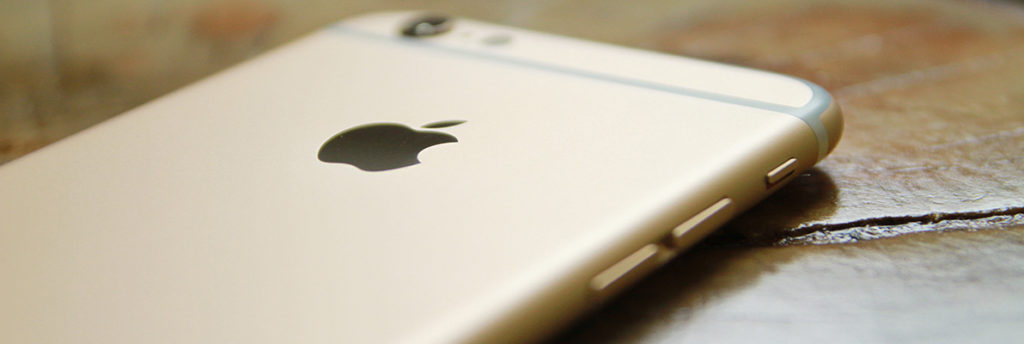The use of smartphones and tablets has been drastically changing how we live, work, and interact with the world. Instead of calling in a pizza order, now people can just order from their mobile app or send a text message with an emoji.
Business workflows are also changing, and for many companies the features available on the mobile version of an application like Sales Force, have become just as important as the desktop version.
Some companies use a BYOD (bring your own device) mobile policy and others issue their own devices for employees to use. Both options can be effective as long as you’ve got the right plan to manage them.
Has your management plan for employee mobile devices kept up?
At ManagedIT, we’ve definitely seen an increase in requests for training, security, and set up of corporate mobile devices. We work to integrate their use fluidly with other office technology, like desktops and cloud platforms, and ensure data that flowing across mobile devices is just as secure.
Did you know? Approximately 60% of employees use apps for work-related activity (Fliplet). And over 71% of staff spend over two hours per week accessing company information on a mobile device.
This has some company benefits such as the ability to offer more flexibility in the work schedule due to mobile working, alerts that can grab someone’s attention, and the ability to better connect your whole team. But mobile device users can also cause some security risks if you don’t have a handle on it.
ManagedIT is here to help with our 5 best tips for effective management of employee mobile devices.
Managing Employee Mobile Devices | 5 Tips from ManagedIT
There’s no getting away from a workforce that is increasingly doing part of their work on smartphones and tablets, so embracing the benefits and making sure your management plan is strong is the best way to go.
Here are 5 helpful tips from our ManagedIT experts to help you do just that.
Set Good Security Protocols
The same types of security protocols you’d use for desktop computers, like strong passwords, should also be enforced for mobile device use. Devices may be smaller, but they can access pretty much the same sensitive data as any larger computer or laptop.
Here are some good security protocols to have your staff follow for mobile device use:
- Time-out pin locking screens
- Passwords that pass “strong password” metrics, like being at least 10 characters
- Location tracking (“Find My Phone”) for lost or stolen devices
- Anti-virus software for mobile devices
- Staying away from free, unsecured Wi-Fi
Use a Device Management Solution
What happens if you need to do a security update to staff mobile devices or ensure a new work-related app is installed correctly? Doing each phone individually or relying on staff to do it themselves just isn’t efficient.
A management tool (like Citrix XenMobile or SOTI MobiControl) allow an administrator to remotely manage employee mobile devices. They allow you to do things like remote wiping for a stolen phone, setting login privileges for particular apps, and logging mobile airtime use per device.
Cloud-based Backup
Mobile devices now have more storage capacity than desktops did a decade and a half ago. Smartphones and tablets can have important company photos, videos, and files on them, just like computers, and you want to be sure they are regularly backed up so nothing gets lost.
Managed cloud backups are the easiest way to ensure that any mobile device containing company data is being backed up regularly so in the event it’s lost or damaged, the data is safe, secure, and easily recoverable.
Be Transparent About Mobile Device Policies
Transparency is really the best policy when it comes to mobile device management. If you are using a BYOD program, make sure you’re very clear about which data would be accessed or backed up by your company and which personal data would not.
You’ll want to be clear about what happens if an employee leaves the company and how access from the device to any company accounts would be affected. It’s a good idea to lay your policies out clearly in writing and have employees sign it before they are either issued a device or given access privileges to apps with company data.
Choose Applications with Cross-Platform Compatibility
Whether you’re choosing a new marketing and CRM software or deciding to update your accounting application, be sure to look for programs that can be used across multiple devices, Android and iOS (Apple).
You also don’t want to be limited by a program that has a great app on one type of mobile platform and a poor one on another. So, it’s wise to put having great mobile app features and interface at the top of your checklist when you’re considering any new software program.
Need Some Help with a Mobile Device Management Plan?
Managing mobile devices doesn’t have to be difficult. ManagedIT has the expertise to help you get a comprehensive and secure mobile device management plan up and running in no time.
Give us a call +65 67488776 or contact us online today!
ManagedIT.SG is an IT Support, IT Solutioning and Managed IT Service Provider specializing in serving Small Businesses in Singapore. Call us at +65 6748 8776 and let us manage your Small Business IT today!
